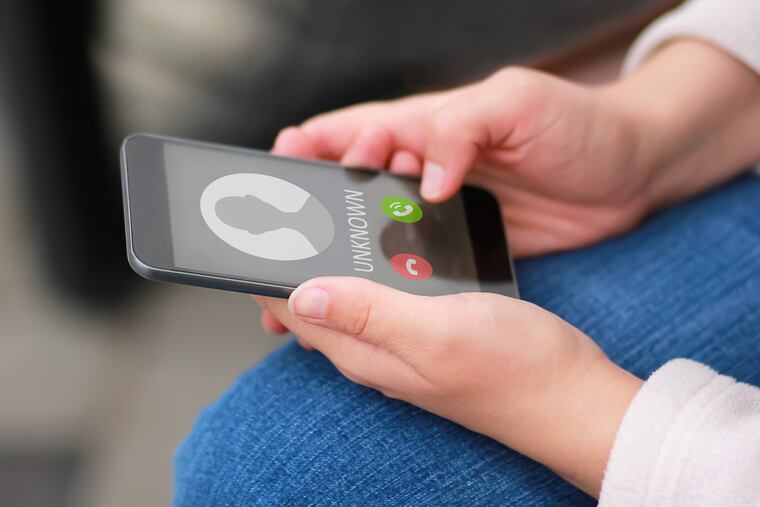A Delco auto lender wants to pay $4 million for allegedly robocalling consumers. A judge is unsure if that’s enough.
The class action lawsuit claims that Flagship Credit Acceptance, based in Chadds Ford, bombarded consumers with unwanted prerecorded messages.

A Delaware County auto loan company has agreed to pay $4 million to settle claims that it illegally robocalled hundreds of thousands of people. But a federal judge has refused to approve the agreement, saying he is unsure if the proposed payout is “fair and reasonable” to consumers.
The class action lawsuit claims that Flagship Credit Acceptance, based in Chadds Ford, bombarded a Georgia man, Robert Ward, with unwanted prerecorded messages even though he wasn’t a Flagship customer. Ward also alleges that Flagship used an autodialing system to call consumers in violation of federal law, according to the complaint filed in U.S. District Court in Philadelphia.
Flagship, which offers loans to “credit-challenged auto shoppers,” declined to comment, citing pending litigation. In court filings, the company said it had consumers’ consent to place the calls and argued that its dialing systems do not meet the federal definition of an “autodialer.”
The Telephone Consumer Protection Act outlaws calls coming from autodialers or those with artificial or prerecorded voices unless consumers give prior consent. Consumers can sue for up to $500 per violation, and courts can award triple damages for willful conduct.
Under the proposed agreement, Flagship would pay more than 67,000 consumers across the country about $35 each, according to court filings.
Ward’s lawyers would split more than $1.3 million, or a third of the $4 million settlement fund.
In May, U.S. District Judge Michael Baylson held off on approving the deal because he said there weren’t enough details to conclude that the settlement was fair and reasonable. He still has concerns with the proposed agreement, and on Monday he appointed former state Supreme Court Justice Jane Cutler Greenspan to review the settlement.
“Also of concern in this case is the very large amount of attorneys’ fees being sought as a percentage of recovery, compared to the anticipated net return to each class member who filed a claim,” Baylson wrote in a May opinion. “As stated in other decisions, every dollar going to counsel is one less dollar doing to the class.”
An attorney for Ward, Sergei Lemberg, said Friday that the $4 million proposed settlement falls within the range of other settlements for similar cases, and that the request for one-third of the settlement fund for attorneys’ fees is standard.
“This is not a money grab. It’s a standard application for standard fees, and in this case, we feel that we deserve it," said Lemberg, a Connecticut lawyer. “I will only do settlements that I believe in. I don’t do any Mickey Mouse games.”
Another factor is what Flagship can afford to pay. A judgment against Flagship could cost the company hundreds of millions of dollars if it lost in court, according to court filings. Such large judgments can put companies out of business, and “then you’re left with nothing,” Lemberg said.
In addition to its Chadds Ford headquarters, Flagship has offices in Irving, Texas, and Tempe, Ariz. The auto lender says it has grown its portfolio to $2.9 billion in outstanding loans.
The class consisted of anyone Flagship called on their cellphone using one of three specific dialing systems, or with a prerecorded voice, from May 2013 to September 2018. More than 20 percent of the roughly 327,000 class members submitted claims. Lemberg attributed the $35 per-person proposed payout to a high participation rate.
Consumers could get slightly less than $35 each if the settlement is approved. That’s because Greenspan has asked to bill $600 per hour for her review of the settlement, according to court filings. That would be paid out of the settlement fund if it is approved.
The 2017 lawsuit started after Flagship kept calling Ward looking for a person named Charles Walker, according to the complaint. Ward told the company that he was not Charles Walker and didn’t know a Charles Walker. The company continued to call anyway, the complaint says.
Flagship called Ward between five and 10 times, Lemberg said. He said the company had the wrong number.